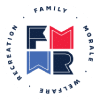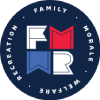Family Advocacy Program
Welcome to the Family Advocacy Program (FAP), your resource for quality of life programs and services.
G Avenue Bldg. 400
Tel: 717-770-7066
Hours of Operation
|
Monday-Friday |
7:00 am – 3:30 pm |
|
Saturday-Sunday |
Closed |
|
U.S. Federal Holidays |
Closed |
By appointment or walk-ins.
Contact Us
G Avenue, Building 400
Tel: 717-770-7066
FAP is your resource for everything from newcomer orientation and deployment preparation to volunteer coordination and counseling education. FAP helps maintain a state of readiness at the installation, through the units and into your homes. Each installation’s FAP office has specialized professionals who support your individual and family needs.
Our mission is to educate, strengthen, and support families. We offer a variety of services to help families develop and maintain healthy relationships, especially during transition and stress. Our primary goal is victim safety and well-being.
Customers have the right to fair and equitable treatment including:
- The right to receive services in a non-discriminatory, culturally responsive, and affirming manner.
- The consistent enforcement of program rules and expectations.
- Equal access when requesting and receiving services.
The DLA Family Advocacy Program can provide:
- Virtual Workshops on parenting and personal adjustment.
- Resources for crisis intervention and free-of-charge counseling services.
- Report point for child abuse, domestic abuse, and intimate partner sexual assault among military members.
- Information and referral for those caring for older adults.
- Deployment and reintegration support for Defense Logistics Agency personnel who are deployed.
If you are in IMMEDIATE DANGER CALL 9-1-1
To report child abuse, domestic abuse or other personal danger concerns, call your local FAP 717-770-7066, or to make a formal report of child abuse call the PA Child Abuse line, 1-800-932-0313.
Call the DoD child abuse report line, 1-877-790-1197, for the reporting of suspicions of child sexual abuse in a DoD facility.
FAP Chats
The Family Advocacy Program (FAP) offers exciting resources monthly.
The monthly FAP Chats are available as resources that can be accessed anytime day or night!
Click the link below to check out the monthly FAP Chat!
General Information
Department of Defense personnel, active duty military, retirees and their family members depending on enrollment in Tricare programs. Call Tricare Customer Service, 1-877-874-2273 to determine eligibility. Appropriate military identification cards are required.
The Family Advocacy Program (FAP) is a Department of Defense sanctioned activity designed to identify, report, treat, and prevent child and domestic abuse.
The Family Advocacy Program offers many services and has ample resources to help improve the quality of your work and home life. Services include:
- Virtual workshops with topics that relate to family matters.
- Crisis intervention referrals and assistance in locating counseling services.
- Extensive library of videos and booklets on personal and family matters
- Report point for child abuse, domestic abuse, and sexual assault (among military members)
- In home services and personal consultation (by phone or in person) to help with parenting or home management problems
- Information and referral for those caring for older adults
- Deployment and reintegration support for Defense Logistics Agency personnel and their families.
To report child or domestic abuse or other personal danger concerns, call (717) 770-7066 or the Security and Emergency Services Dispatcher at (717) 770-6270.
If you are experiencing personal or family problems, call (717) 770-7066 to find out about free, confidential counseling available to military, civilians, and their family members.
Our nation asks a lot of military members and their families. Service Members are often taken away from their family for long periods. Military families move every few years and are usually a long way from other relatives. Our children can see how dangerous their parents’ jobs are on television. Bottom line – military families make sacrifices.
As a result, military families experience unusual pressure. Too often, they don’t know it’s okay to ask for help to deal with problems before they become crises. The Family Advocacy Program is here to help you with practical knowledge and support on issues ranging from enriching your marriage to parenting your teenager. Call the Family Advocacy Program. We can help you find additional assistance available in the civilian community.
The Family Advocacy Program has all the professional help and practical know-how you need to avoid crisis. And working to solve family problems with us beats fighting over them at home.
Violence is a socially learned response. Here are some tips to help avoid a crisis.
- Take all threats seriously.
- Do not use alcohol and/or drugs when in a stressful situation.
To assure your future safety, take some action to protect yourself:
- Ask for help. To locate domestic violence services near you, call the National Domestic Violence Hotline at 1-800-799-SAFE or at www.ndvh.org. Then contact a domestic violence service near you to plan for your safe future. People who are staffing the phones can help you to plan how to protect yourself. They can refer you to other services and recommend shelters to stay in. They can inform you about the laws in your area, and they can advise you about restraining orders. Develop a safety plan that specifies who will be with you when you need companionship and protection. Also plan for safety in your workplace or at your school.
- Call people who are willing to help you and tell them how they can help to protect you now and in the future.
- If you have been abused in front of others, ask witnesses to write down what they saw.
- Contact the police if your abuser has broken a law, or even if you just think they might have broken a law. Assaulting you or stealing or destroying your property is a crime.
- Consider getting a restraining order or protective order to keep your spouse or intimate partner away from you.
- Get adequate rest and medical attention for yourself.
- Learn self-defense to protect yourself.
- York County Crisis Intervention, 717-851-5320
- Dauphin County Crisis Intervention, 717-232-7511
- Cumberland, and Perry County Crisis Intervention, 717-763-2222
- National Suicide Prevention Lifeline, 1-800-273-TALK (8255)
- Veterans Crisis Line, 1-800-273-TALK (8255) (press 1)
Family violence, whether it’s child abuse and neglect or domestic violence between couples, is a national social problem. And, unfortunately, military families are not immune.
The Department of Defense regards family violence as serious and a violation of our core military values. Abuse damages victims, their families, and the military community. As a community, we must end it. One incident of family violence is one too many. In addition, personnel who are preoccupied with family conflict, or may miss duty assignments because of it, hurts mission readiness.
To stop family violence, we need your help. Department of Defense policy requires everyone to report suspected cases of family violence to the Family Advocacy Program. We are ready to intervene on your behalf, to provide necessary safety, support, and services, as well as coordinate the military and civilian public agencies.
No service member, intimate partner, or child deserves to be abused. It is not his or her fault. The effects of physical, emotional, and sexual abuse can last a lifetime. Please realize that choosing not to inform the military prevents you from enlisting the support of the command and military resources designed to help families. It is the responsibility of every person in the military community to help stop family violence.
If you work for Defense Distribution Center, Susquehanna, Defense Distribution Center, Susquehanna Installation Support, or live in installation housing and you or your children or someone you know is a victim of abuse, call Defense Distribution Center, Susquehanna Installation Support Police at (717) 770-6270 or Family Advocacy at (717) 770-7066.
Department of Defense (DoD) Domestic Violence Reporting Policy
The DoD is committed to ensuring victims of domestic abuse are protected, treated with dignity and respect, and provided support, advocacy and care.
DoD policy also strongly supports effective command awareness and prevention programs, as well as, law enforcement and criminal justice activities that will maximize accountability and prosecution of perpetrators of domestic abuse.
To achieve these dual objectives, DoD policy prefers that personnel report suspected domestic abuse incidents promptly to activate both victims’ services and add accountability actions.
However, a requirement that all domestic abuse incidents be reported can represent a barrier for victims hoping to gain access to medical and victim advocacy services without command or law enforcements involvement.
In order to address these competing interests, adult victims of domestic abuse incidents now have two reporting options: unrestricted reporting and restricted reporting.
Unrestricted Reporting
Victims of domestic abuse who want to pursue an official investigation of an incident should use current reporting channels, e.g., chain of command, Family Advocacy Program (FAP), or law enforcement. Upon notification of a reported domestic abuse incident, victim advocacy services and FAP clinical services will be offered to the victim.
Additionally, at the victims’ discretion/request, the health care provider will conduct any forensic medical examination deemed appropriate. Details regarding the incident will be limited to only those personnel who have a legitimate need to know.
Restricted Reporting
Restricted reporting allows an adult victim of domestic abuse to disclose the details of his or her abuse to specifically identified individuals and receive medical treatment and victim advocacy services without requiring that notice be provided to the victim’s or alleged offender’s commander or law enforcement.
Victims of domestic abuse who desire restricted reporting under this policy must report the abuse to one of the following specified individuals: a victim advocate, a victim advocate supervisor or health care provider.
Additionally, a victim’s disclosure of his or her domestic abuse to persons other than those covered by this policy may result in an investigation of the allegations by law enforcement and clinical intervention from FAP.
In addition to the Family Advocacy Program, 717-770-7066:
Access York, a program of YWCA York, 1-800-262-8444
All children need love, nurturing, structure, and discipline to grow into healthy, responsible adults. The military recognizes and supports the right and obligation of parents to appropriately discipline their children. Physical discipline of children is highly discouraged. Discipline that leaves marks and bruises on children is regarded as excessive, and it is generally considered child abuse by physicians and the Family Advocacy Program Case Review Committee. Reports of suspected child abuse will be investigated.
What You Can Do To Prevent Child Abduction and Exploitation
- Don’t assume that your children are safe on the installation. Know where your children are at all times. Be familiar with their friends and daily activities.
- Be sensitive to changes in your children’s behavior; they are signals to talk to your children.
- Be alert to a people who pay an unusual amount of attention to your children or give them gifts.
- Teach your children to trust their own feelings, and know they have the right to say NO.
- Listen carefully to your children’s fears, and be supportive in all your discussions with them.
- Teach your children that no one should approach them or touch them in a way that makes them feel uncomfortable. If someone does, they should tell the parents immediately.
- Be careful about babysitters and any other individuals who have custody of your children.
Basic Rules of Safety for Children
As soon as your children can articulate a sentence, they can begin the process of learning how to protect themselves against abduction and exploitation. Children should be taught:
- If in a public place and separated parents, don’t wander around. Go to a checkout counter, the security office, or the lost and found and quickly tell the person in charge that you have lost your parent.
- Do not get into a car or go anywhere with any person unless their parents have said it is okay.• If someone follows you on foot or in a car to stay away from that person. Children don’t need to go near the car to talk to the people inside.
- People should not be asking children for help. They should be asking older people.
- No one ask children for directions or to look for a “lost puppy;” or tell children their parent is in trouble and that they will take you to them.
- If someone tries to take them somewhere to quickly get away, tell them to yell or scream. “This man is trying to take me away” or “This person is not my father (or mother).”
- Always use the “buddy system” and never go places alone.
- Always ask their parents’ permission to leave the yard or play area or to go into someone’s home.
- Never hitchhike or try to get a ride home with anyone without parental permission.
- No one should ask you to keep a special secret. If he or she does, tell your parents or teacher.
- If someone wants to take your picture, tell him or her NO and tell your parents or teacher.
- No one should touch children in the parts of the body covered by the bathing suit, nor should they touch anyone else in those areas. A person’s body is special and private.
- To be assertive, and they have the right to say NO to someone who tries to take them somewhere, touches them, or makes them feel uncomfortable in any way.
Child Protection Is the Responsibility of Everyone
Because children cannot look out for themselves, it is our responsibility to look out for them. Every home should establish a program that effectively teaches children about safety and protection measures. And, most important, make your home a place of trust and support that fulfills your child’s needs – so that he or she won’t seek love and support from someone else. Source: The National Center for Missing and Exploited Children.
The Exceptional Family Member Program supports military families by ensuring family members with special physical, emotional or intellectual needs can be met by referring families to local sources of assistance. We provide program information, assist with enrollment, and help you to find the services you require. Active duty military personnel are required to enroll family members with special needs in order to ensure appropriate services are available at the next duty station when permanent change of station orders are issued. This benefits both your branch of service and your family.
The Family Advocacy Program is dedicated to supporting healthy families.
FREE SERVICES INCLUDE:
- Web-based information on medical, family, legal, and financial matters available to civilian employees. Visit Federal Occupational Health’s DLA Life Connections at http://www.worklife4you.com. When prompted for a screen name, type in DLA, then enter DLA for the password. This website helps you manage your day-to-day responsibilities. By phone, it is 1-800-222-0364.
- Monthly distribution of information for parents.
- We conduct “Greet and Share” sessions with Child and Youth Development Services’ parents on the second Thursday of every month. The Family Advocacy Program Manager can meet individually with parents about their concerns. The Family Advocacy Program has a section in the Child Development Center monthly newsletter.
- Information tables are offered monthly at two installation locations on a variety of personal adjustment and wellness issues to improve your work and family life-coping skills.
- Each branch of military service has an Exceptional Family Member Program (EFMP), which makes it mandatory for service members with family members who have special physical, emotional, intellectual, or educational needs to enroll for assignment purposes. The FAPM can assist in enrollment of EFMP. For direct enrollment at Carlisle Barracks call (717) 245-4574.
- A library of videos and pamphlets.
- Over 300 titles on personal and family matters are available to you free of charge. Just stop by the Family Advocacy Program office or call for a mail-out at (717) 770-7066.
- A licensed, experienced social worker is available to meet with you by phone or in person to make recommendations or suggestions on how you can address the personal or family-related issues life presents, usually by referring you to free-of-charge counseling or support groups. Behavioral Health Services at Carlisle Barracks offers free counseling services for active duty and retired military and their family members at (717) 245-4602.
- Crisis services for families at risk of child or domestic abuse. Whether you are concerned about your own violence or the violence of someone you care about, find out about local free services to stop or prevent family or couple’s violence.
Military One Source: www.militaryonesource.com, 1-800-342-9647
Provides resources to assist in all aspects of the journey through parenthood.
Child Care Aware: https://childcareaware.org/ , 1-800-424-2246
Child Care Aware provides comprehensive, nationwide child care resources and information for parents and caregivers.
HealthyChildren.org: https://healthychildren.org
Operated by the American Academy of Pediatrics, this site provides information on ages and stages, child safety, family life, healthy living and health issues, child and adolescent development, etc.
ZERO TO THREE: https://www.zerotothree.org
ZERO TO THREE is a national, nonprofit organization that informs, trains, and supports professionals, policymakers, and parents in their efforts to improve the lives of infants and toddlers.





